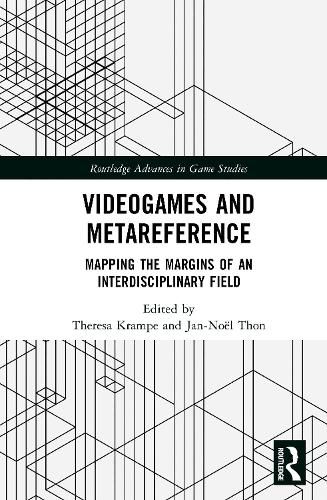Readings Newsletter
Become a Readings Member to make your shopping experience even easier.
Sign in or sign up for free!
You’re not far away from qualifying for FREE standard shipping within Australia
You’ve qualified for FREE standard shipping within Australia
The cart is loading…






Videogames and Metareference is the first edited collection to investigate the rise of metareference in videogames from an interdisciplinary perspective.
Bringing together a group of distinguished scholars from various geographic and disciplinary backgrounds, the book combines in-depth theoretical reflection with a diverse selection of case studies in order to explore how metareference manifests itself in and around a broad range of videogames (from indie to AAA), while also asking what cultural work the videogames in question accomplish in the process. The carefully curated chapters not only provide much-needed expansions and revisions of a concept that was at least initially derived mainly from literary studies but also cover a broad range of videogame genres, discuss the evolution of metareference across videogame history as well as the functions it fulfils in different sociocultural contexts, and scrutinize metareferential elements and examples that have hitherto received little attention.
This book with its interdisciplinary scope will appeal to scholars and students within game studies and game design as well as, more broadly, scholars and students within literary studies, media studies, popular culture studies, and digital culture studies.
$9.00 standard shipping within Australia
FREE standard shipping within Australia for orders over $100.00
Express & International shipping calculated at checkout
Videogames and Metareference is the first edited collection to investigate the rise of metareference in videogames from an interdisciplinary perspective.
Bringing together a group of distinguished scholars from various geographic and disciplinary backgrounds, the book combines in-depth theoretical reflection with a diverse selection of case studies in order to explore how metareference manifests itself in and around a broad range of videogames (from indie to AAA), while also asking what cultural work the videogames in question accomplish in the process. The carefully curated chapters not only provide much-needed expansions and revisions of a concept that was at least initially derived mainly from literary studies but also cover a broad range of videogame genres, discuss the evolution of metareference across videogame history as well as the functions it fulfils in different sociocultural contexts, and scrutinize metareferential elements and examples that have hitherto received little attention.
This book with its interdisciplinary scope will appeal to scholars and students within game studies and game design as well as, more broadly, scholars and students within literary studies, media studies, popular culture studies, and digital culture studies.